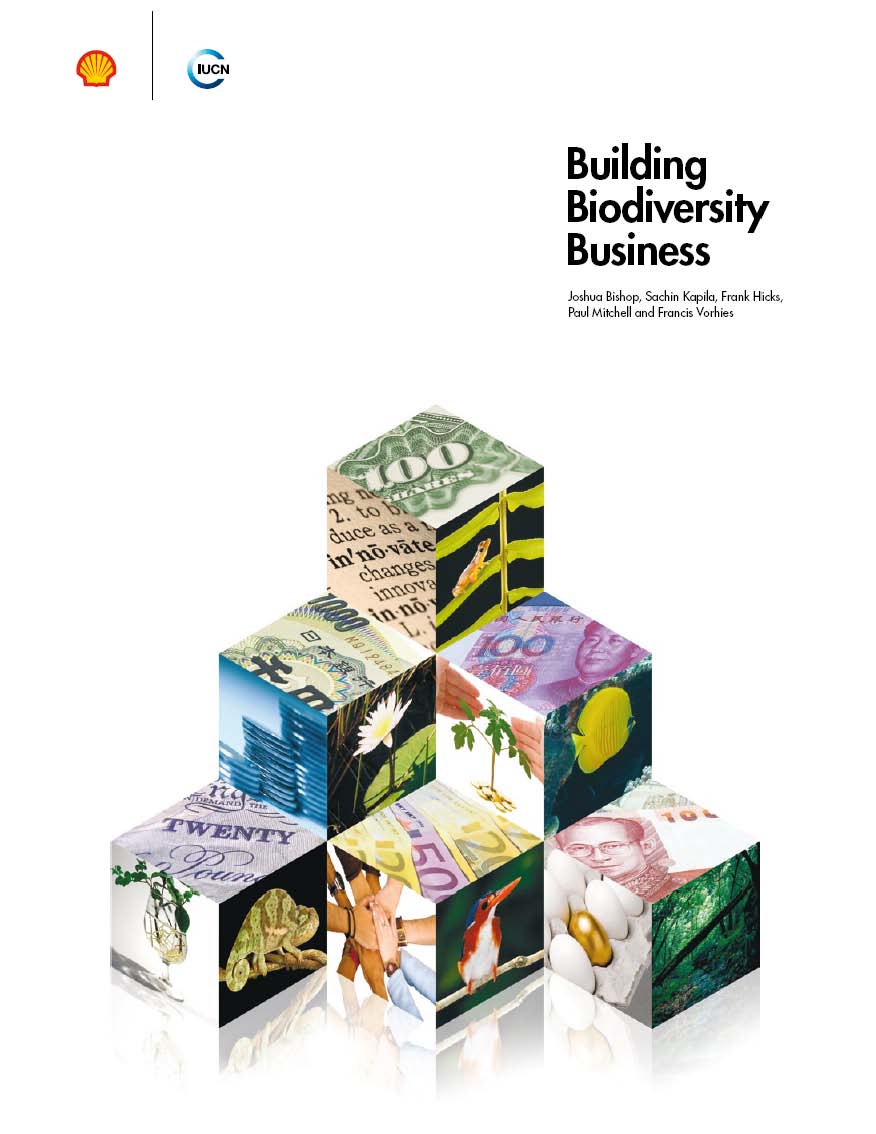Building Biodiversity Business
The challenge of building biodiversity business is not trivial. Biodiversity is still largely neglected by private finance. There is a need to develop new business models and market mechanisms for biodiversity conservation, and to persuade the public and policy makers that biodiversity (or component ecosystem services) can be conserved on a commercial basis. Based on extensive consulatation and analysis, the authors of this new report conclude that there are numerous pro-biodiversity business opportunities that can generate positive financial returns as well as real biodiversity benefits.

Photo: IUCN Shell
The natural diversity of the living world, with its myriad species, complex ecosystems and constantly evolving genetic structure, is a priceless inheritance, but one that is commonly under-valued by modern economies, resulting in its rapid and accelerating disappearance. Ironically, while the biological foundation of our lives erodes beneath our feet, human economies continue to thrive, generating ever-greater quantities and qualities of material goods and consumer services. On the one hand, diminishing biodiversity, and on the other, expanding economies. The two phenomena are not unrelated. Modern economies are very good at producing what people will pay for. They are not so good at preserving what is priceless. Much of the ongoing loss of biodiversity can be attributed, directly or indirectly, to the production and consumption of goods and services to meet human needs.
Action is urgently required to halt the loss of biodiversity, but governments and nongovernmental organisations cannot do it alone. Policies and regulations that require business and consumers to reduce their environmental footprint are important, but not sufficient. Taxing businesses and consumers or seeking charity from them could raise significant sums for biodiversity conservation, but does little to alter day-to-day decision-making in the market place. The question is how to enlist both the purchasing power of consumers and the productive capacity of business to help meet the global biodiversity challenge. This in turn requires that we find ways to make a stronger business case for biodiversity conservation and to create or expand markets for genetic diversity, species conservation and ecosystem resilience in the same way that markets have been created at a global level for carbon and in some countries for other ecosystem services.
The challenge of building biodiversity business is not trivial. Biodiversity is still largely neglected by private finance. There is a need to develop new business models and market mechanisms for biodiversity conservation, and to persuade the public and policy makers that biodiversity (or component ecosystem services) can be conserved on a commercial basis. Based on extensive consultation and analysis, the authors of this new report conclude that there are numerous pro-biodiversity business opportunities that can generate positive financial returns as well as real biodiversity benefits. To achieve this requires building on existing initiatives, recruitment of additional investors and entrepreneurs, and ‘raising the bar’ in terms of both the scale and conservation benefit of private investment. To this end, three separate but related institutional functions must be fulfilled: namely the development of appropriate enabling policy; the provision of technical and managerial support tailored to biodiversity business; and access to appropriate finance from investors who understand the particular constraints and opportunities of creating new businesses and markets.



